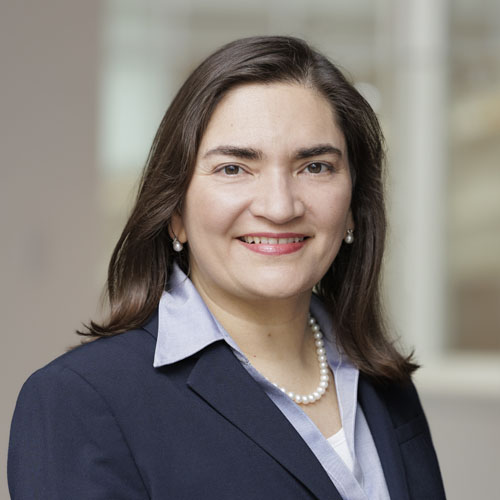-
- Find Care
-
- Visitor Information
- Find a Location
- Shuttles
- Visitor Policies
-
-
- Our Virtual Care Options
- Virtual Urgent Care
- Virtual Visits for Primary & Specialty Care
- Online Second Opinions
- Participate in Research
-
- Contact us
-
- For Innovators
- Commercialization Guide for Innovators
-
-
- Research News
- Alzheimer's Disease
- Artificial Intelligence
-
- Overview
-
- Overview
- Getting Started
- New to Mass General Brigham
- International Patient Services
- What Is Patient Gateway?
- Planning Your Visit
- Find a Doctor (opens link in new tab)
- Appointments
- Patient Resources
- Health & Wellness
- Flu, COVID-19, & RSV
- Billing & Insurance
- Financial Assistance
- Medicare and MassHealth ACOs
- Participate in Research
- Educational Resources
- Visitor Information
- Find a Location
- Shuttles
- Visitor Policies
- Find Care
-
- Overview
- Our Virtual Care Options
- Virtual Urgent Care
- Virtual Visits for Primary & Specialty Care
- Online Second Opinions
-
- Overview
- Participate in Research
-
- Overview
- About Innovation
- About
- Team
- News
- For Industry
- Venture Capital and Investments
- World Medical Innovation Forum (opens link in new tab)
- Featured Licensing Opportunities
- For Innovators
- Commercialization Guide for Innovators
- Contact us
-
- Overview
- Information for Researchers
- Compliance Office
- Research Cores
- Clinical Trials
- Advisory Services
- Featured Research
- Two Centuries of Breakthroughs
- Advances in Motion (opens link in new tab)
- Brigham on a Mission (opens link in new tab)
- Gene and Cell Therapy Institute
- Research News
- Alzheimer's Disease
- Artificial Intelligence
-
- Overview
-
- Overview
- Residency & fellowship programs
- Brigham and Women's Hospital
- Massachusetts General Hospital
- Mass Eye and Ear
- Newton-Wellesley Hospital
- Salem Hospital
- Integrated Mass General Brigham Programs
- Centers of Expertise
- Global & Community Health
- Health Policy & Management
- Healthcare Quality & Patient Safey
- Medical Education
- For trainees
- Prospective trainees
- Incoming trainees
- Current trainees
- Continuing Professional Development
Fighting Cancer with Our Own Cells: CAR T-cell Therapy

Marcela Maus, MD, PhD, director of cellular immunotherapy, and Matthew Frigault, MD, clinical director of cellular therapy, both at Massachusetts General Hospital, are leading groundbreaking research on cellular therapy. Their focus is on chimeric antigen receptor T-cell (CAR-T) therapy, a treatment that harnesses the power of the patient's own immune cells to fight cancer more effectively and precisely.
What are T-cells?
Dr. Frigault: T-cells are a type of immune cell capable of specifically targeting and killing the cells they recognize. Using the immune system as a cancer treatment has the potential to induce long-term, durable remissions, and perhaps even cure some patients. T-cells are also able to persist in the body for many years and form immune ‘memory,’ which means they can remember and attack cancer cells if they return, providing the possibility of long-term protection.
What is CAR T-cell therapy?
Dr. Maus: CAR T-cell therapy is a cancer treatment that uses a patient's own cells to fight cancer, making it the most personalized way to treat cancer. This treatment involves extracting a patient's T-cells and then genetically modifying them to produce special proteins on their surface called chimeric antigen receptors (CAR). These CARs enable the T-cells to recognize and attack cancer cells. The modified T-cells are then injected back into the patient’s body, where they seek out and destroy tumor cells directly.
How can T-cells be used in cancer treatment?
Dr. Maus: We are investigating three main approaches for using T-cells in cancer treatments:
- Developing new ways to design molecular receptors to target T-cells to both liquid and solid tumors.
- Using T-cells as delivery vehicles for other drugs and using drugs to enhance T-cells' effectiveness against tumors.
- Understanding how T-cells can function as “living drugs” to treat patients with cancer.
My lab is specifically interested in using genetic engineering techniques to re-direct T-cells to locate and kill tumor cells while sparing healthy tissues.
What kind of cancers could CAR T-cell therapy treat?
Dr. Frigault: Currently, there are several FDA-approved CAR T-cell therapies for blood-based cancer, with promising developments on the horizon for other types. Additionally, a new cell-based immunotherapy called TIL (tumor infiltrating lymphocyte) recently received FDA approval for advanced melanoma.
Dr. Maus and her team recently discovered encouraging results from a clinical trial that used CAR T-cells to treat a deadly form of brain cancer—glioblastoma.
What’s the future of this kind of treatment?
Dr. Frigault: This new approach is the result of years of collaboration and innovation. We have established a team of collaborating scientists and expert personnel to rapidly advance next-generation genetically modified T-cells from the lab to clinical trials for patients with cancer.
Dr. Maus: We have invested in developing a team to translate our innovations in immunotherapy from our lab to the clinic, aiming to transform care for patients with cancer. These results are exciting, but they are also just the beginning—they tell us that we are on the right track in pursuing a therapy with the potential to change the outlook for this intractable disease. Curing patients is our goal.
Discover how physician investigators Marcela Maus, MD, PhD, and Matthew Frigault, MD, are leveraging patients’ own immune systems to treat cancer.

Contributor
